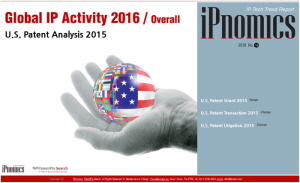Electronics and Telecommunications Research Institute (ETRI, Director Lee Sang-hoon) has developed a technology that can increase and control realistic effects of 4D images and secured international standards for it. It is currently transferring this technology to companies in South Korea and is expecting that it will contribute in developing related industries such as large multiplex theaters and experience centers and information centers for realistic contents.
ETRI made an announcement on the 2nd that it received final approval for its ‘realistic effect engine’ technology as an international standard from ISO (International Organization for Standardization) and IEC (International Electrotechnical Commission) at the end of last year.
Realistic effect engine is a system that sets up and reproduces additional effects such as wind, smell, lighting, waterjet, and motion effect according to images per time and it is an important element in a field of 4D images. However ETRI announced that there were no effective applications since there was no realistic effect engine that was standardized.
In order to apply this technology to variety of realistic effect systems, ETRI has manufactured separate metadata and readjusted detailed conditions according to situations when 4D images are shown at theaters.
ETRI emphasized that its realistic effect engine technology is the only technology that is standardized. This technology will be first applied by realistic effect contents manufacturers. Because theaters and experience and information centers are going to follow this standard, it is likely that this will resolve any inefficiency that had been present.
Picture of a researcher from ETRI demonstrating effects such as wind, smell, and lighting through realistic effect engine technology that has become an international standard
Level of convenience of this technology is also outstanding. ETRI is providing data management and control interface so that manufacturers and users can easily add or subtract realistic effects to images. Because this technology also has a search function, one can find and separate any realistic effects that are added to particular sections of images. It can also analyze realistic effect systems of theaters and others and adjust level of realistic effects according to situations.
Recently ETRI has been researching on applying Deep Learning technology to realistic effect engine. This technology automatically controls realistic effects by analyzing current manufacturers and users’ behaviors on addition of realistic effects. ETRI is also thinking about developing a technology for household systems if there are demands from household appliance manufacturers.
ETRI has also prepared bases for creating profits through this technology. It finished transferring this technology to total of seven companies such as Man&Tel Co., Ltd. that specializes in rehabilitation treatment and UNUS Inc. that specializes in realistic effects for broadcasting contents. It also announced about 20 theses that can be citation indexes for scientific technology theses (Science Citation Index) and finished applying 34 patents in South Korea and foreign countries.
“Technology that can manufacture and control highly-efficient realistic contents has been internationally standardized.” said Department Head Jang Jong-hyeon of ETRI Giga Service Research Department. “Related markets will become vitalized as environments for realistic effect contents and development of devices have been improved.”
Staff Reporter Kim, Youngjun | [email protected]


